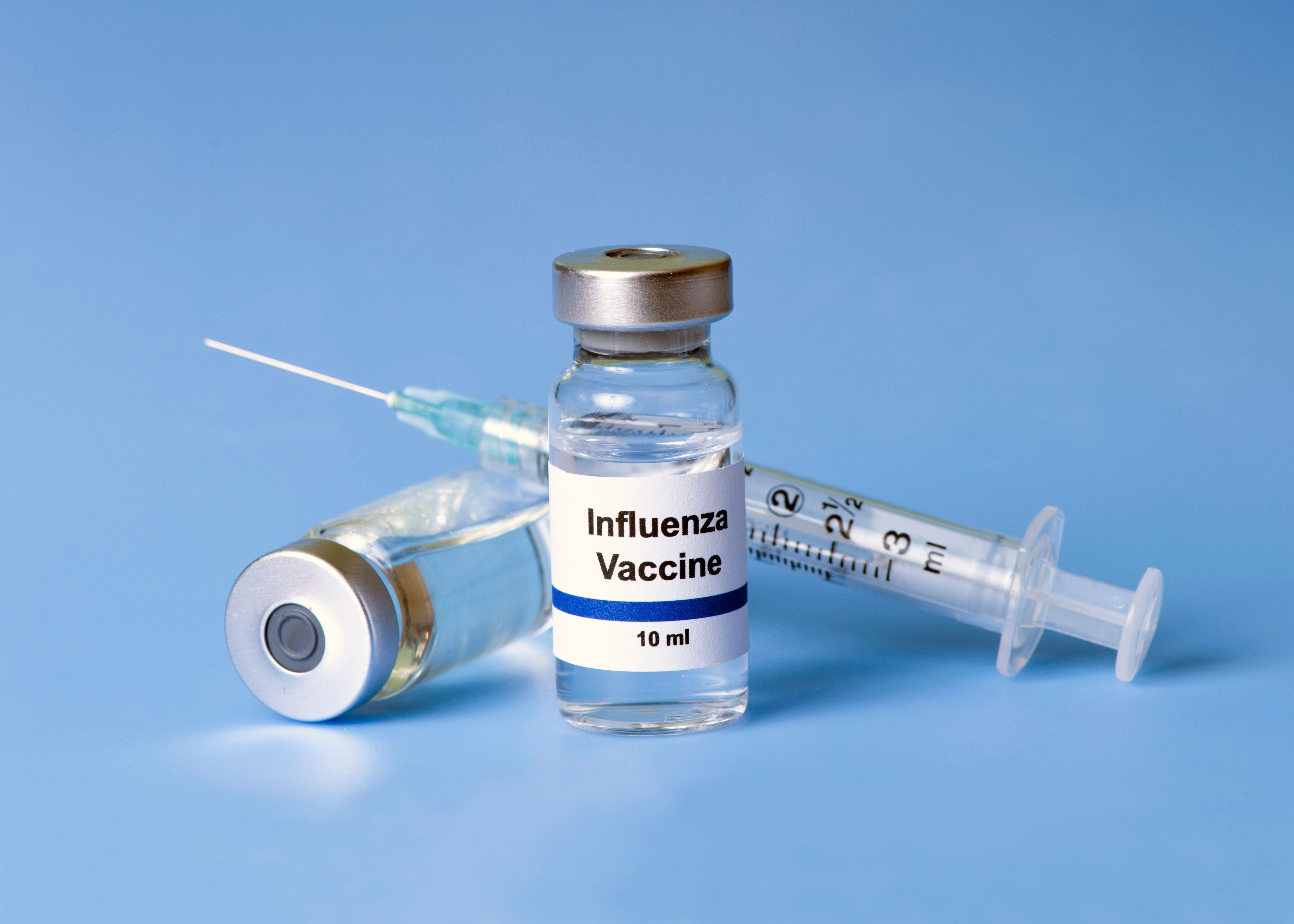- Center on Health Equity & Access
- Clinical
- Health Care Cost
- Health Care Delivery
- Insurance
- Policy
- Technology
- Value-Based Care
Health Care Personnel Influenza Vaccination Coverage Declined After COVID-19 Pandemic, Study Says
Researchers hypothesized that health care personnel (HCP) influenza vaccination coverage decreased during the pandemic because individuals may have believed that it was less important than in previous years.
Influenza vaccination coverage among health care personnel (HCP) in acute care hospitals declined after the COVID-19 pandemic, according to a study published in the CDC’s Morbidity and Mortality Weekly Report.
The researchers noted that the Advisory Committee on Immunization Practices recommended that HCP receive an annual influenza vaccine to reduce associated morbidity and mortality. Also, in 2013, CMS began requiring acute care hospitals to report aggregate facility-level data on HCP influenza vaccination to the CDC’s National Health Care Safety Network (NHSN). Consequently, they had to report the vaccination status of all HCP in the facility who worked for more than 1 day between October 1 and March 31; the 2019 to 2020 season was an exception, as CMS made it optional to report vaccine coverage to reduce regulatory workload during the COVID-19 pandemic.
In this study, the researchers analyzed HCP influenza coverage data reported to NHSN during 6 flu seasons (2017-2018 through 2022-2023) to describe annual changes before and after the pandemic. They found that 5231 acute care hospitals reported HCP influenza vaccination data to NHSN, including 2908 (55.6%) hospitals during the 2019 to 2020 season when reporting was optional.
Overall, across the 6 influenza seasons, pooled vaccination coverage among HCP was 85.8%. During the pre-pandemic influenza seasons (2017-2018, 2018-19, and 2019-2020) the researchers noted that pooled annual influenza vaccination coverage was 88.6%, 90%, and 90.7%, respectively. Conversely, during the influenza seasons after the COVID-19 pandemic (2020-21, 2021-22, and 2022-23), HCP vaccination coverage declined to 85.9%, 80.4%, and 81.1%, respectively.
Influenza vaccine
Image credit: Sherry Young - stock.adobe.com

In terms of specific HCP roles, the researchers found influenza vaccination coverage to be lower among licensed independent practitioners (OR, 0.35; 95% CI, 0.34-0.37) and student trainees or volunteers (OR, 0.98; 95% CI, 0.81-0.98). Also, compared with HCP in rural areas, they found that those working in suburban areas were more likely to be vaccinated (OR, 1.16; 95% CI, 1.05-1.28).
The researchers hypothesized that HCP influenza vaccination coverage decreased during the pandemic because individuals may have believed that influenza vaccination was less important than in previous years; they explained that there was more of a push for COVID-19 vaccination once it became available, which may have led to less emphasis on influenza vaccination. Similarly, the researchers noted that some individuals may have been hesitant to receive both the COVID-19 and influenza vaccines at once, contributing to lower influenza vaccination coverage.
The authors also acknowledged their study’s limitations, one being that NHSN does not collect data about facility-level HCP influenza vaccination mandates; this meant that it was not possible to determine how facility-level vaccination mandates impacted overall influenza vaccination coverage among HCP. Also, because reporting vaccination coverage for the 2019 to 2020 season was optional, the data’s generalizability was limited that year.
Despite their study’s limitations, the researchers explained that their findings demonstrated the importance of investigating why HCP vaccine coverage declined. Their findings also showed that additional efforts are needed to increase HCP influenza vaccination coverage.
“Acute care hospitals can use evidence-based strategies to increase vaccination coverage, including implementing mandatory immunization policies and offering on-site influenza vaccination at no cost to all employee and nonemployee staff members,” the authors concluded. “Understanding factors contributing to recent declines in influenza vaccination among HCP might facilitate targeted interventions to increase influenza vaccination coverage during future public health emergencies.”
Reference
Lymon H, Meng L, Reses HE, et al. Declines in influenza vaccination coverage among health care personnel in acute care hospitals during the COVID-19 pandemic — United States, 2017–2023. MMWR Morb Mortal Wkly Rep. 2023;72:1244–1247. doi:10.15585/mmwr.mm7245a6
